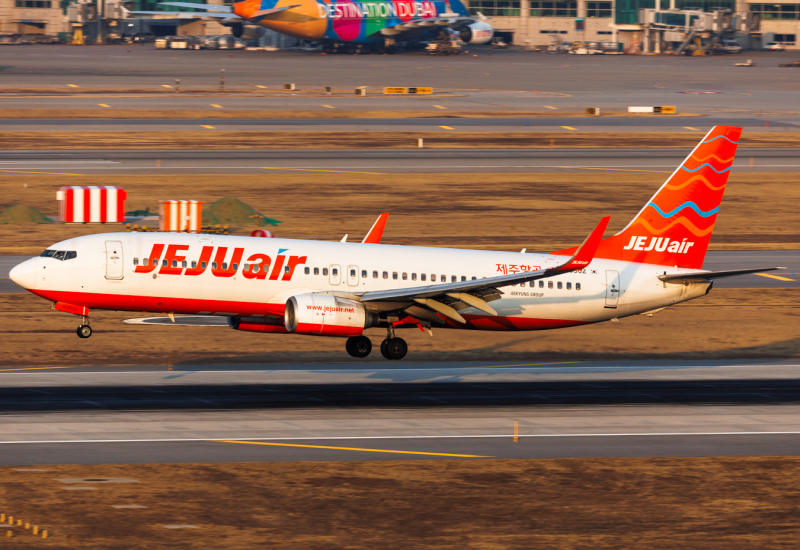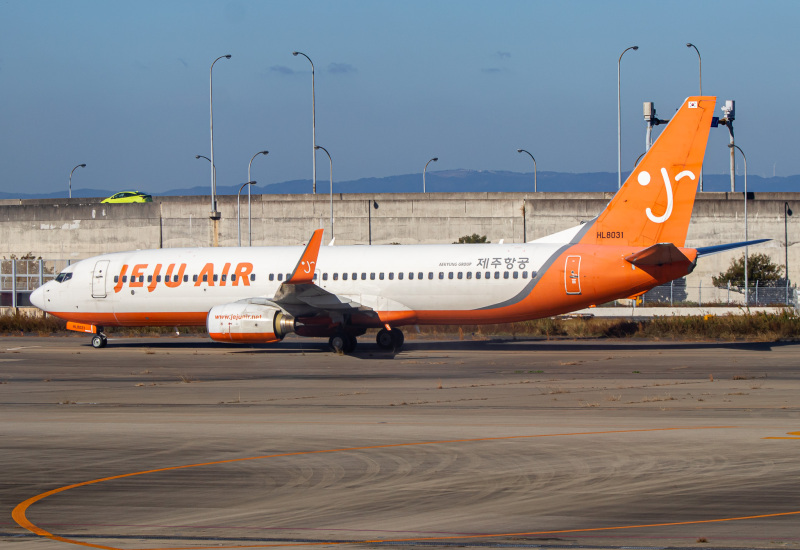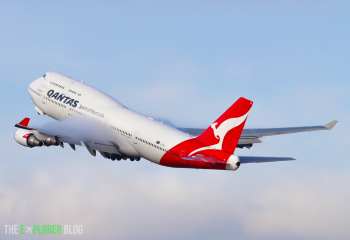The black boxes of the Jeju Air Boeing 737-800 aircraft that crashed several weeks ago in Muan, South Korea, stopped working during the last four minutes of the flight. The crash killed 179 of the 181 people onboard.
Without the flight data and cockpit voice recorders, investigators now face a significant setback as they lack crucial information that promised to shed light on the incident.

Missing Data from Onboard Flight and Voice Recorders
On Saturday, the South Korean Transport Ministry announced that the two black boxes, including the flight data and cockpit voice recorders, from Jeju Air Flight 2216 stopped recording four minutes before the fatal accident. Previously, investigators had said that the data contained inside the black boxes were key to determining the cause of the deadly crash.
These data recorders capture the aircraft’s movements, which could have helped to explain the teardrop maneuver and eventual belly landing, as well as the dialogue between pilots, which would have allowed investigators to understand the decisions made leading up to the deadly landing attempt.
After the crash, South Korean officials analyzed the black boxes before sending them to the United States National Transportation Safety Board (NTSB) for further review. However, the NTSB confirmed what South Korean investigators already suspected: that some data was missing from the recorders.

“Data from the CVR (cockpit voice recorder) and FDR (flight data recorder) are crucial in investigating accidents, but such investigations are conducted through the examination and analysis of various sources of information, and we plan to do our utmost to determine the cause of the accident,” the South Korean ministry said in a statement.
However, while the missing black boxes pose a major setback to the investigation, they may give investigators new insight into what happened following the bird strike.
Around the time the data recorders failed, the pilots told air traffic controllers that they had suffered a bird strike, subsequently declaring an emergency. Since the flight data and voice recorders both failed directly following the bird strike, it suggests that all power systems failed, including the backup power systems that the black boxes rely on in the event of a power loss onboard the aircraft.
If the aircraft did lose all power, it could explain part of the decision to “teardrop” back to the airport and land on the runway in the opposite direction. It could also possibly explain the failure of the landing gear and deployment of spoilers, which slow an aircraft down after landing.
Investigators still have not reached any concrete conclusions about the cause of the crash, with the power failure discussed above only one possible explanation.
SpaceX Rocket Debris Forces Flight Delays for Qantas and SAA on Australia-South Africa Routes » Jeju Air Black Box Flight Recorders Failed Minutes Before South Korean Plane Crash » 4-Hour Flight Airborne for Nearly 8 Hours Following "Stabilizer Issues" »
Comments (2)
 Jeff
I am an airline Captain. Honestly, the media’s insistence that this crash is somehow mysterious, is kind of laughable. They probably shut down the wrong engine after the bird strike and subsequent go around. Either that, or there was a mysterious, double bird strike in the left engine. No CVR, means no ENGINE power. It also explains the lack of gear and flaps. The teardrop turn around maneuver, and the fact they had enough altitude and speed to even turn around and land, means that one engine was working for most of the emergency. Also, according to Aviation week, the Korean government plans to modify airport infrastructure and “step up pilot training in emergency engine shutdown scenarios” for pilots. I think they already know what happened.
Jeff
I am an airline Captain. Honestly, the media’s insistence that this crash is somehow mysterious, is kind of laughable. They probably shut down the wrong engine after the bird strike and subsequent go around. Either that, or there was a mysterious, double bird strike in the left engine. No CVR, means no ENGINE power. It also explains the lack of gear and flaps. The teardrop turn around maneuver, and the fact they had enough altitude and speed to even turn around and land, means that one engine was working for most of the emergency. Also, according to Aviation week, the Korean government plans to modify airport infrastructure and “step up pilot training in emergency engine shutdown scenarios” for pilots. I think they already know what happened.
 Chris
Those last few minutes are important yes.
But why are they holding back on the event while on their first final approach while properly configured. ADSB shows a stabilized approach even at 409 feet. Why in earth would anyone attempt a go around when only a few more seconds to touchdown. What was the confusion on deciding to miss because of a tower controller changing the runway to 19?
Chris
Those last few minutes are important yes.
But why are they holding back on the event while on their first final approach while properly configured. ADSB shows a stabilized approach even at 409 feet. Why in earth would anyone attempt a go around when only a few more seconds to touchdown. What was the confusion on deciding to miss because of a tower controller changing the runway to 19?
Add Your Comment
SHARE
TAGS
NEWS Jeju Air Black Box South Korea Air Crash Air Crash InvestigationRECENTLY PUBLISHED
 SpaceX Rocket Debris Forces Flight Delays for Qantas and SAA on Australia-South Africa Routes
Qantas and South African Airways (SAA) have faced flight delays and cancellations on their routes between Australia and South Africa due to falling debris from SpaceX rockets, Elon Musk's aerospace company.
NEWS
READ MORE »
SpaceX Rocket Debris Forces Flight Delays for Qantas and SAA on Australia-South Africa Routes
Qantas and South African Airways (SAA) have faced flight delays and cancellations on their routes between Australia and South Africa due to falling debris from SpaceX rockets, Elon Musk's aerospace company.
NEWS
READ MORE »
 Jeju Air Black Box Flight Recorders Failed Minutes Before South Korean Plane Crash
The black boxes of the Jeju Air Boeing 737-800 aircraft that crashed several weeks ago in Muan, South Korea, stopped working during the last four minutes of the flight. The crash killed 179 of the 181 people onboard. Without the flight data and cockpit voice recorders, investigators now face a significant setback as they lack crucial information that promised to shed light on the incident.
NEWS
READ MORE »
Jeju Air Black Box Flight Recorders Failed Minutes Before South Korean Plane Crash
The black boxes of the Jeju Air Boeing 737-800 aircraft that crashed several weeks ago in Muan, South Korea, stopped working during the last four minutes of the flight. The crash killed 179 of the 181 people onboard. Without the flight data and cockpit voice recorders, investigators now face a significant setback as they lack crucial information that promised to shed light on the incident.
NEWS
READ MORE »
 4-Hour Flight Airborne for Nearly 8 Hours Following "Stabilizer Issues"
A Boeing 737-800 registered to UT Air made an emergency landing on January 7th. The flight, UT Air Flight 881, reportedly experienced "stabilizer issues" mid-flight, causing the aircraft to divert to Moscow Vnukovo Airport (VKO) 6 hours and 50 minutes after takeoff. None of the 173 passengers onboard were injured.
NEWS
READ MORE »
4-Hour Flight Airborne for Nearly 8 Hours Following "Stabilizer Issues"
A Boeing 737-800 registered to UT Air made an emergency landing on January 7th. The flight, UT Air Flight 881, reportedly experienced "stabilizer issues" mid-flight, causing the aircraft to divert to Moscow Vnukovo Airport (VKO) 6 hours and 50 minutes after takeoff. None of the 173 passengers onboard were injured.
NEWS
READ MORE »



